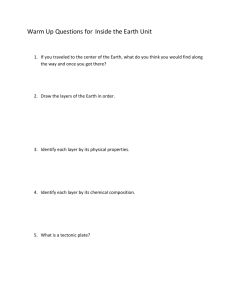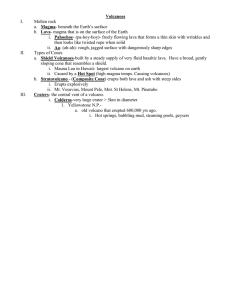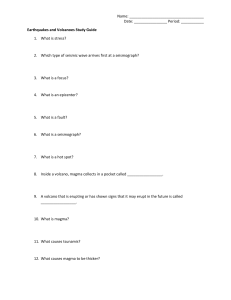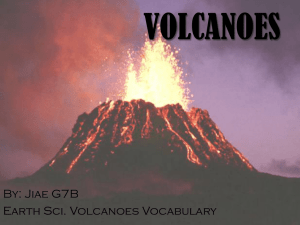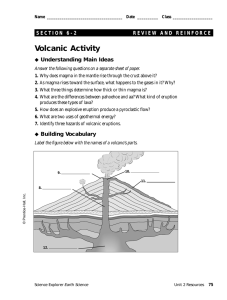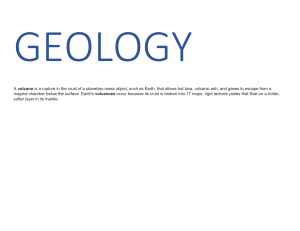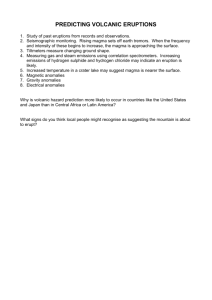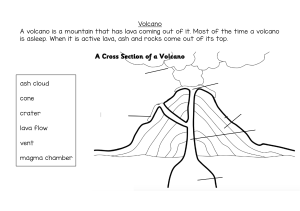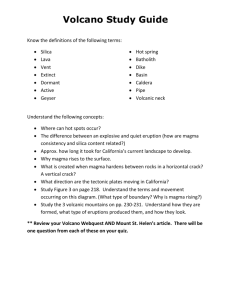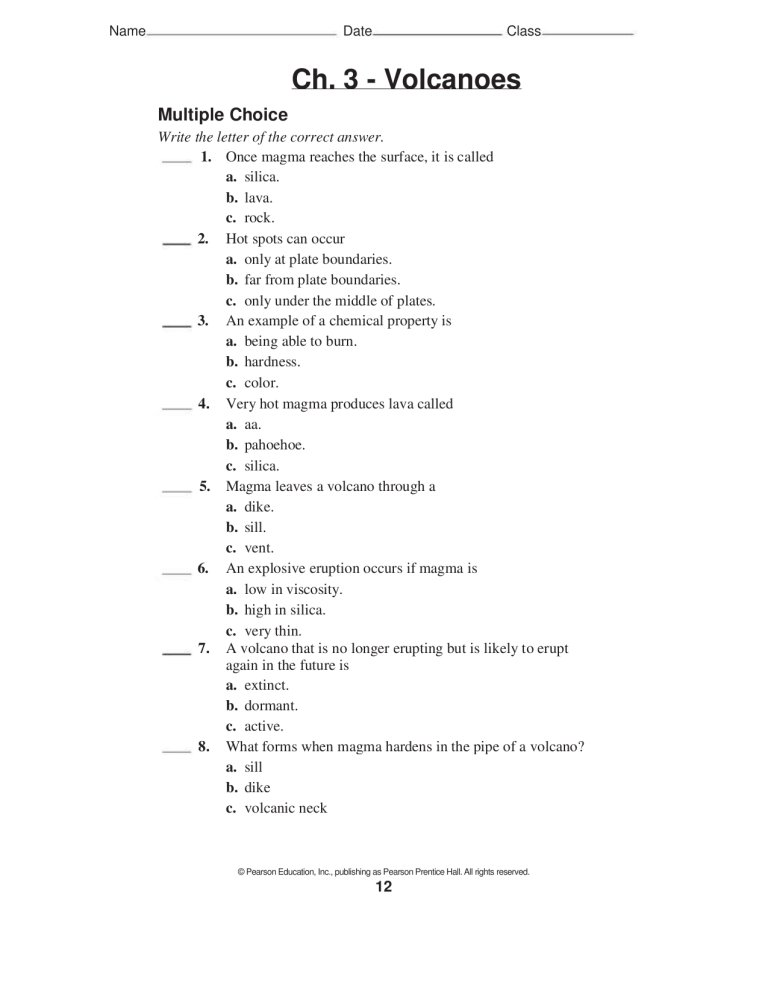
Name Date Class Ch. 3 - Volcanoes Multiple Choice Write the letter of the correct answer. 1. Once magma reaches the surface, it is called a. silica. b. lava. c. rock. 2. Hot spots can occur a. only at plate boundaries. b. far from plate boundaries. c. only under the middle of plates. 3. An example of a chemical property is a. being able to burn. b. hardness. c. color. 4. Very hot magma produces lava called a. aa. b. pahoehoe. c. silica. 5. Magma leaves a volcano through a a. dike. b. sill. c. vent. 6. An explosive eruption occurs if magma is a. low in viscosity. b. high in silica. c. very thin. 7. A volcano that is no longer erupting but is likely to erupt again in the future is a. extinct. b. dormant. c. active. 8. What forms when magma hardens in the pipe of a volcano? a. sill b. dike c. volcanic neck © Pearson Education, Inc., publishing as Pearson Prentice Hall. All rights reserved. 12 Name Date Class Volcanoes ■ 9. When a volcano erupts quietly, what kind of mountain forms? a. shield volcano b. cinder cone c. composite volcano 10. What forms when hot water and steam are trapped underground in a narrow crack? a. hot spring b. geyser c. batholith Completion Read the words in the box. In each sentence below, fill in one of the words. extinct caldera viscosity pipe volcano dormant 11. A weak spot in the crust where magma comes to the surface is a(an) 12. How well a liquid flows depends on its 13. A long tube that connects a magma chamber to the surface is called a(an) 14. A volcano that is no longer likely to erupt is said to be 15. A huge hole left behind when a volcano collapses is a(an) True or False If a statement is true, write true. If it is false, write false. 16. Magma rises to the surface because it is less dense than solid rock. 17. A volcano that erupts quietly produces ashes, cinders, and bombs. 18. A dike forms when magma hardens between rocks in a horizontal layer. © Pearson Education, Inc., publishing as Pearson Prentice Hall. All rights reserved. 13 Name Date Class Volcanoes ■ 19. A batholith forms when a large amount of lava hardens on the surface. 20. Hot water from underground can be used to heat homes. Using Science Skills The diagram below shows two plates coming together. Use the diagram to answer questions 21 and 22. 21. Interpreting Diagrams What kind of plate boundary is shown in the diagram? a. divergent boundary b. convergent boundary c. transform boundary 22. Inferring What causes magma to form at this plate boundary? a. The oceanic plate sinks beneath the continental plate and melts. b. The continental plate gets warmer and melts. c. The continental plate pushes magma up from the mantle. © Pearson Education, Inc., publishing as Pearson Prentice Hall. All rights reserved. 14 Name Date Class Volcanoes ■ Using Science Skills The diagram below shows a volcano. Use the diagram to answer questions 23, 24, and 25. lava magma 23. Interpreting Diagrams Which type of volcano is shown in the diagram? a. cinder cone b. shield volcano c. composite volcano 24. Applying Concepts Which kind or kinds of eruptions has this volcano had? a. quiet eruptions b. explosive eruptions c. both quiet eruptions and explosive eruptions 25. Inferring Which kinds of materials are likely to erupt next? a. lava and magma b. ash, cinders, and bombs c. magma and bombs © Pearson Education, Inc., publishing as Pearson Prentice Hall. All rights reserved. 15
